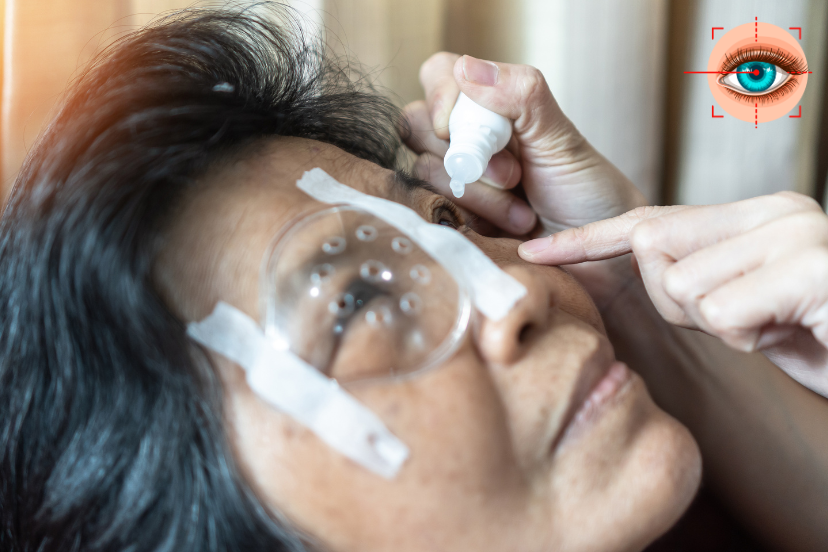How Long Between Cataract Surgery on Each Eye
Discover the optimal timing for cataract surgery on each eye. Learn why spacing matters and how it enhances your vision health. Dive in now! Cataract surgery is a transformative procedure that enhances vision and improves overall quality of life. When faced with cataracts in both eyes, a common question arises: How long between cataract surgery on each eye? In this comprehensive guide, we will explore the factors influencing this decision and provide valuable insights to help you make an informed choice.
How Long Should You Wait Between Cataract Surgeries on Each Eye?
Understanding the Cataract Surgery Process
Before delving into the timing aspect, it’s essential to grasp the fundamentals of cataract surgery. This procedure involves removing the cloudy natural lens and replacing it with a clear artificial lens. Notably, cataract surgery is typically performed on one eye at a time.
The Significance of Timing
Why does the timing between cataract surgeries matter? Primarily, it influences the recovery process for each eye. Allowing a suitable interval between surgeries ensures that the first eye undergoes a smooth healing process before the second eye is addressed. Additionally, it provides an opportunity to evaluate the success of the initial surgery, adjusting the approach if necessary.
General Recommendations for Timing
In the realm of cataract surgeries, a prevailing recommendation is to wait several weeks to a couple of months between procedures. This timeframe allows for the initial healing of the first eye and minimizes the potential risks associated with consecutive surgeries.
Considering Individual Health Factors
While general guidelines exist, the ideal timing between cataract surgeries is a nuanced decision influenced by individual health considerations. Factors such as overall health, existing eye conditions, and personal preferences play a pivotal role. Individuals with specific health concerns may need a more extended interval to ensure their bodies can effectively cope with the stress of consecutive surgeries.
Balancing Risks and Benefits
Cataract surgery is generally considered safe; however, like any medical procedure, it comes with inherent risks. By spacing out the surgeries, these risks are mitigated, allowing for better management of potential complications. This careful approach enhances the overall safety and success of the cataract surgery process.
Navigating the Recovery Period
Understanding the typical recovery period is crucial when determining the optimal timing between cataract surgeries. While most individuals experience improved vision within a few days, complete recovery may take several weeks. A spaced-out surgery schedule ensures that each eye receives the necessary attention and care during this critical phase.
Collaboration with Your Eye Care Professional
Deciding on the timing of cataract surgeries is not a decision to be made in isolation. It requires collaboration with your eye care professional. They will assess your unique circumstances, monitor your recovery progress, and provide personalized recommendations tailored to your specific health needs.
Addressing Common Concerns
It’s natural to harbor concerns about undergoing surgery on both eyes. Addressing common worries, such as the fear of prolonged discomfort or an increased risk of complications, is essential. Open communication with your eye care professional can help alleviate these concerns, making the decision-making process more transparent and comfortable.
Lifestyle Adjustments During the Interim Period
While awaiting the second surgery, certain lifestyle adjustments may be necessary. Planning these adjustments around a spaced-out surgery schedule allows for a more manageable and less disruptive experience. Adapting daily activities to accommodate the recovery process contributes to a smoother transition between surgeries.
Empowering Vision Enhancement Techniques
In the interim period between cataract surgeries, various techniques and aids can enhance your vision. Your eye care professional can guide you on activities and practices that promote visual well-being during this time. These techniques not only contribute to a better quality of life but also prepare you for improved vision post-surgery.
Regular Monitoring of Vision Health
Regular check-ups with your eye care professional are indispensable. Monitoring your vision health ensures that any issues are promptly addressed, contributing to the success of both cataract surgeries. Consistent communication with your eye care team fosters a proactive approach to maintaining optimal eye health.
How Long Should You Wait Between Cataract Surgeries on Each Eye – Conclusion
In conclusion, the decision of how long to wait between cataract surgeries is multifaceted, involving careful consideration of various factors. Working collaboratively with your eye care professional, understanding the recovery process, and addressing concerns will contribute to a successful outcome. Ultimately, the goal extends beyond improved vision to an enhanced quality of life, and navigating this journey with informed decisions is key.
Please note that this article should not replace professional medical advice. Consult a healthcare professional for an accurate diagnosis and tailored treatment plan.
Frequently Asked Questions (FAQs)
How long should I wait between cataract surgeries?
Wait several weeks to a couple of months between cataract surgeries. This timeframe ensures a smooth healing process for the first eye and minimizes risks associated with consecutive surgeries. Collaborate with your eye care professional, considering individual health factors for a personalized approach to optimize safety and success.
What if I experience discomfort after the first surgery?
If discomfort persists or worsens after the first cataract surgery, immediately consult your eye care professional. Addressing post-surgery discomfort promptly is crucial for a smooth recovery process. Your eye care team can provide guidance and interventions to alleviate any concerns and ensure optimal healing and comfort.
Can I resume normal activities between surgeries?
In most cases, you can resume normal activities between cataract surgeries. Follow your eye care professional’s advice on any specific restrictions or adjustments based on your individual recovery progress. Maintaining a balanced routine supports overall well-being and contributes to a smoother transition between surgeries.
Are there any long-term effects of having cataract surgery on both eyes?
Cataract surgery on both eyes generally has minimal long-term effects. Serious complications are rare, but individual experiences vary. Your eye care professional will discuss specific risks and address concerns, ensuring a comprehensive understanding of potential outcomes and the overall success of the surgical process.
Can I choose to have both eyes done simultaneously?
While simultaneous cataract surgery is possible, it’s less common and involves higher risks. Your eye care professional will guide you based on your individual situation, considering factors like overall health and potential complications. Collaborate closely with your eye care team to make informed decisions for the best possible outcome.




